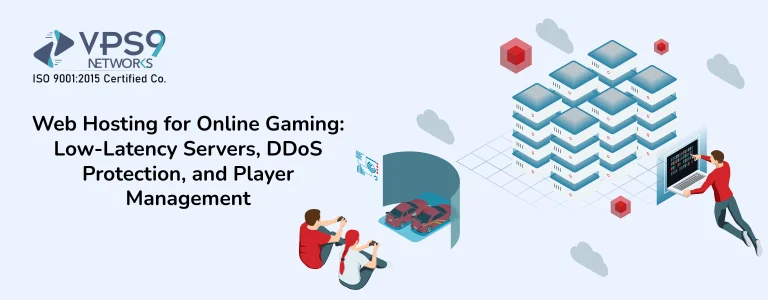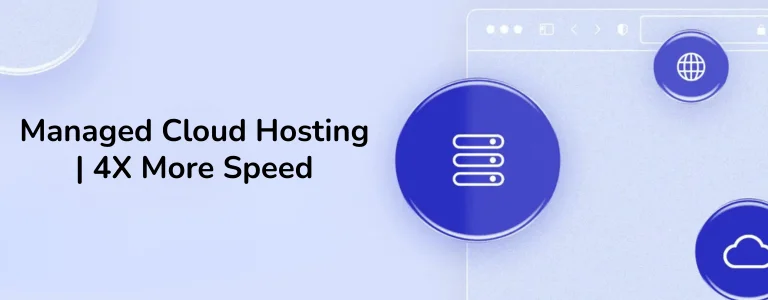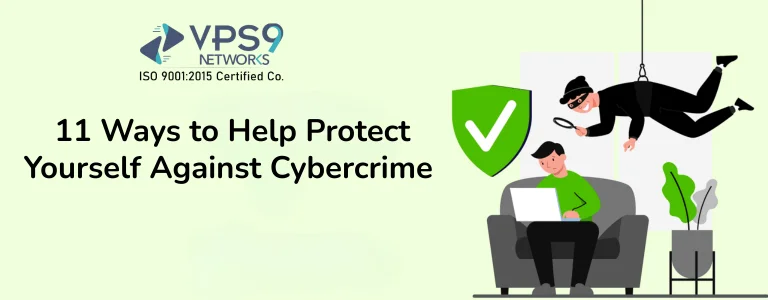Table of Contents
- Introduction to Online Gaming Hosting
- Importance of Low-Latency Servers
- DDoS Protection for Gaming Servers
- Player Management in Online Games
- Choosing the Best Hosting Solution for Online Gaming
- Conclusion
Introduction to Online Gaming Hosting
There has been a significant increase in the demand for online gaming, and high-end
web hosting is essential for an ideal experience. A robust gaming server minimizes lag while ensuring security and, and supports smooth interactions between players. When hosting multiplayer games, battle royale games or esports tournaments, the right hosting provider is extremely important in creating good gaming experiences.

Importance of Low-Latency Servers
Latency, also known as “ping,” is the time data takes to travel from a player to the host. High latency (ping) causes disruptive lag, particularly detrimental in action-adventure genres of first-person shooters (FPS) and real-time strategy (RTS) games. Low latency results in seemingly instant response from server to player to player movements and actions.
To mitigate latency, it is imperative that any server utilized for playing games is located near the gamers. Also, the type of connection utilized (high-speed fiber-optic communications) and tuning the server configuration can also increase performance. CDNs optimise game data distribution to minimise bottlenecks of sending game data in an efficient manner to minimise any bottleneck and still provide a response in an optimised time.

DDoS Protection for Gaming Servers
DDoS attacks overwhelm game servers with malicious traffic, potentially with excessive internet traffic, which can result in slow response times or server shutdowns altogether. DDoS attacks can hinder online multiplayer games, leading to frustration for gamers, and a possible loss of income for game publishers.
To protect against DDoS attacks,
game server hosting companies use traffic filtering, advanced firewalls, and AI-based mitigation. Most dedicated game servers include standard DDoS protection, which will detect malicious internet traffic, preventing the traffic from disrupting gameplay. Other options include regular security audits and implementing rate limiting to reduce vulnerabilities.

Player Management in Online Games
Effective player management systems maintain game integrity through secure user authentication, prevent unauthorised access from other players, and
cloud storage helps ensure that player data and progress never gets lost. Good database management systems are essential for tracking player stats, rankings, and transactions in-game.
Online gaming communities must be moderated in relation to cheating and hacking. Anti-cheating software can detect hacks and exploits, as well as real-time monitoring systems that will not disrupt gameplay. Most game developers have some form of AI moderation tool or active game masters to support a good gaming experience./

Choosing the Best Hosting Solution for Online Gaming
The decision of whether to go with
dedicated servers or an online hosting service is really going to come down to the game you will be hosting and how many players you will have. Dedicated servers are going to offer the absolute best quality of performance, and these are most suited for competitive multiplayer titles and the larger multiplayers. An online gaming platform will offer the best option for scaling, which is suited for games with ebbing and flowing player numbers and increases in your player base.
When it comes to choosing a web hosting service for online gaming, you should look for attributes such as fast SSD storage, a 99.99% uptime policy, low-latency network, and data centers spread out across the globe. Some of the best hosting services for online gaming are Amazon Web Services (AWS), Google Cloud Platform (GCP), Microsoft Azure PlayFab,
Vps9 Networks and OVH game servers, all of which provide dedicated options based on the type of game you want to use.
Conclusion
A properly configured gaming server is a vital component of online gaming; it provides latency reduction, security against security threats, and optimization for players. By putting your money into a web hosting provider that is well-built with low-latency servers, DDoS protection, and a scalable infrastructure, you will be able to provide an overall smooth and enjoyable online gaming experience. A gaming server hosting provider allows game developers and game server admins to build a stable multiplayer gaming platform that entertains and delights players.















